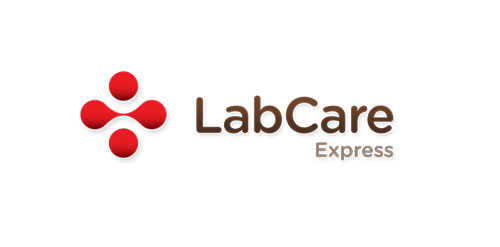Description

Dicatalyst

BookitLab
Comprehensive Overview: Dicatalyst vs BookitLab
Dicatalyst Overview
a) Primary Functions and Target Markets
Dicatalyst is a platform aimed at enhancing digital transformation for businesses by offering collaborative tools that improve data management, process automation, and productivity. Its primary functions include document management, workflow automation, data analytics, and collaborative workspaces. The target markets for Dicatalyst are medium to large enterprises across various industries seeking to optimize their digital operations and improve team collaboration and productivity. This includes sectors like finance, healthcare, manufacturing, and technology, among others.
BookitLab Overview
a) Primary Functions and Target Markets
BookitLab is a laboratory management system (LIMS) software designed to help research facilities manage and optimize the use of laboratory resources. Its primary functions include equipment scheduling, inventory management, data management, and compliance tracking. BookitLab targets research institutions, universities, hospital labs, and biotech companies that require precise management and scheduling of laboratory resources to enhance efficiency and comply with industry regulations.
Comparative Analysis
b) Overall Market Share and User Base
-
Dicatalyst
- Market Share: Since Dicatalyst targets a broader range of industries focused on business process optimization, its market share can be relatively expansive but competitive due to the presence of established digital transformation tools like Microsoft Power Platform, Trello, and Asana.
- User Base: Dicatalyst strives to build a diverse user base across multiple sectors, positioning itself as a versatile platform for businesses aiming to digitize their operations.
-
BookitLab
- Market Share: BookitLab captures a niche market within the laboratory management space, directly competing with other LIMS providers such as LabWare and LabVantage.
- User Base: Its user base is more specialized, consisting of research institutions and laboratories where precision in equipment and resource management is critical.
Key Differentiating Factors
c) Key Differentiating Factors
-
Audience and Application:
- Dicatalyst is oriented towards broader business process management and digital collaboration, suitable for a wide variety of industries.
- BookitLab is specifically designed for the laboratory environment, addressing unique needs such as equipment booking and compliance management.
-
Functional Focus:
- Dicatalyst focuses on improving workflow and cross-team collaboration through digital platforms, data analytics, and process automation.
- BookitLab offers specialized features like equipment usage scheduling, lab protocol management, and integration with lab instruments, supporting research efficiency and regulatory compliance.
-
Customization and Flexibility:
- Dicatalyst offers customizable tools that can be tailored to fit a wide range of business needs, providing flexibility across different departmental requirements.
- BookitLab offers integrations and configurations that are specifically tailored for laboratory environments, emphasizing compliance with industry standards and specialized laboratory needs.
Conclusion
Dicatalyst and BookitLab both offer valuable solutions but cater to distinct markets and operational needs. Dicatalyst is ideal for businesses looking to enhance general digital transformation initiatives, while BookitLab is designed specifically for managing laboratory operations and compliance efficiently. These differences in focus and application specify their unique value propositions to their respective target audiences.
Contact Info

Year founded :
2017
Not Available
Not Available
India
http://www.linkedin.com/company/dicatalyst

Year founded :
Not Available
+1778-800-1203
Not Available
Canada
Not Available
Feature Similarity Breakdown: Dicatalyst, BookitLab
As of my last update, Dicatalyst and BookitLab are both software platforms that serve the needs of laboratories and research facilities. Here is a general breakdown of their features, interfaces, and unique aspects:
a) Core Features in Common:
-
Inventory Management:
- Both Dicatalyst and BookitLab offer features for tracking and managing laboratory inventory. This includes managing stock levels, reagents, supplies, and equipment.
-
Sample Tracking:
- Both platforms provide tools for tracking samples throughout their life cycle within the laboratory, ensuring easy access and retrieval.
-
Scheduling and Resource Management:
- Each platform offers scheduling tools for equipment booking and resource allocation, helping to maximize efficiency and utilization of laboratory resources.
-
Data Management and Reporting:
- Both Dicatalyst and BookitLab provide robust data management features that allow users to store, analyze, and generate reports on laboratory data.
-
Compliance and Audit Trails:
- Both platforms support maintaining compliance with regulatory standards by providing audit trails and traceability features.
b) User Interface Comparison:
-
Dicatalyst:
- Dicatalyst generally features a modern and streamlined interface, with an emphasis on ease of use and accessibility. Its design involves intuitive navigation with dashboard features that provide quick overviews of key metrics and processes.
-
BookitLab:
- BookitLab's interface is often described as functional with a focus on detailed scheduling and resource allocation. This product prioritizes precise control over scheduling and visual representations of resource bookings.
While both platforms have user-friendly interfaces, Dicatalyst may appeal more to users seeking a modern, simplified experience, whereas BookitLab may be favored by those who require more granularity and detail in scheduling.
c) Unique Features:
-
Dicatalyst Unique Features:
- Collaborative Tools: Dicatalyst may offer enhanced collaborative features, allowing for better team communication and project management within the platform.
- Integration Capabilities: It might have extensive integration with other software platforms and systems, providing seamless workflows across different tools.
-
BookitLab Unique Features:
- Detailed Scheduling and Calendar View: BookitLab is known for its advanced scheduling capabilities, potentially offering more comprehensive options for managing laboratory bookings and shared resources.
- Advanced User Permissions: BookitLab might offer more intricate user permission settings, which can help labs segregate roles and responsibilities effectively.
Overall, both Dicatalyst and BookitLab provide comprehensive features for laboratory management, but their suitability can depend on the specific needs of a laboratory, such as the importance of integration capabilities or the need for advanced scheduling features. Always check the latest updates from the vendors to get detailed insights into their offerings.
Features

Not Available

Not Available
Best Fit Use Cases: Dicatalyst, BookitLab
When evaluating Dicatalyst and BookitLab, it’s important to understand their specific strengths and the particular needs they address for different business contexts.
Dicatalyst
a) Best Fit Use Cases:
-
Research-Based Organizations: Dicatalyst is ideal for organizations that handle large volumes of documents and require efficient data management and retrieval. This includes academic institutions, research labs, and government agencies that constantly work with extensive data sets and need streamlined document management solutions.
-
Consultancy Firms: Firms that manage numerous client documents and require robust collaboration tools benefit from Dicatalyst's ability to organize and secure sensitive information.
-
Enterprises in Regulated Industries: Businesses in heavily regulated sectors like healthcare, finance, and legal services can leverage Dicatalyst for its compliance and data governance capabilities, ensuring secure handling of sensitive documents.
d) Industry Verticals & Company Sizes:
- Industries: Academic, Healthcare, Legal, Financial Services
- Company Sizes: Medium to large enterprises that have vast data management needs and require advanced document management features.
BookitLab
b) Preferred Scenarios:
-
Academic and Research Institutions: BookitLab is tailored for environments that require resource management, lab equipment booking, and inventory control, making it perfect for universities and research labs.
-
Biotech and Pharmaceutical Companies: These organizations need precise equipment scheduling, inventory management of reagents and samples, and strict compliance with industry regulations—scenarios where BookitLab excels.
-
Core Facilities and Shared Resource Labs: Facilities where shared equipment and resources must be efficiently allocated among various departments or projects can significantly benefit from BookitLab's robust booking and management features.
d) Industry Verticals & Company Sizes:
- Industries: Biotech, Pharmaceuticals, Academic Research, Clinical Research
- Company Sizes: Suitable for small to mid-sized research labs up to larger institutions, primarily those with substantial equipment and resource management needs.
Comparative Analysis
-
Dicatalyst focuses on broad document management and collaboration capabilities, catering to diverse sectors that have complex data handling requirements. It is generally better suited for businesses with an emphasis on document-heavy processes and stringent data compliance needs.
-
BookitLab, on the other hand, is specialized for environments that require precise control over physical resources and equipment management. Its strength lies in facilitating laboratory operations, making it the preferred solution for scientific and research-focused industries.
In summary, the choice between Dicatalyst and BookitLab largely depends on whether the primary need is document management and collaboration (Dicatalyst) or resource and equipment management (BookitLab). Each product serves distinct verticals, helping organizations operate efficiently within their specific domains.
Pricing

Pricing Not Available

Pricing Not Available
Metrics History
Metrics History
Comparing teamSize across companies
Conclusion & Final Verdict: Dicatalyst vs BookitLab
To provide a comprehensive conclusion and final verdict for Dicatalyst and BookitLab, we'll evaluate them on various key factors to help determine which product offers the best overall value, outline their pros and cons, and offer specific recommendations for users considering these two options.
a) Best Overall Value
Dicatalyst:
- Dicatalyst is often appreciated for its user-friendly interface and robust features tailored towards managing and automating lab processes. It integrates well with other systems, providing flexibility and automation that can lead to increased efficiency.
BookitLab:
- BookitLab is known for its comprehensive resource management, including scheduling, equipment management, and billing features. It is particularly useful for institutions with extensive equipment management needs, offering a detailed module for managing lab workflows.
Overall Verdict: The best overall value depends significantly on the specific needs of the lab or institution. If you need extensive equipment management and scheduling features, BookitLab might offer better value. However, if integration and automation are critical, Dicatalyst may be the more valuable option.
b) Pros and Cons
Dicatalyst:
- Pros:
- Highly customizable and integrates well with various systems.
- Streamlines lab workflows and automates repetitive tasks.
- Offers robust data management capabilities.
- Cons:
- May require specialist training for optimal use and setup.
- Could have higher upfront costs, especially for customized integrations.
BookitLab:
- Pros:
- Excellent resource scheduling and equipment management features.
- Provides detailed reporting and billing functionalities.
- Simplified user interface for resource booking and management.
- Cons:
- May not integrate as seamlessly with other software systems.
- Can be less flexible for labs needing customized solutions beyond standard equipment management.
c) Recommendations
-
Assess Your Needs: Determine the priorities of your lab or institution. If your operations heavily rely on managing and scheduling equipment, BookitLab might be more beneficial. Conversely, if your focus is on integration, automation, and overall process management, Dicatalyst should be considered.
-
Pilot Testing: If possible, conduct a trial period with both software options. This firsthand experience will provide insights into which system aligns best with your laboratory’s workflows.
-
Consider Long-term Costs and Support: Evaluate the long-term costs, including training, maintenance, and support, for each platform. Analyze how these factors align with your budget and resource capacity.
-
User Feedback and Reviews: Look into user reviews and case studies for both Dicatalyst and BookitLab. Other users’ experiences can offer valuable insights into potential challenges and advantages.
-
Consultation with Vendors: Engage in discussions with both vendors to understand how each product can be tailored to meet your specific requirements, and whether they offer the flexibility needed for future growth.
Ultimately, the decision should be made based on a careful analysis of your specific lab requirements, budget considerations, and strategic goals.
Add to compare
Add similar companies




